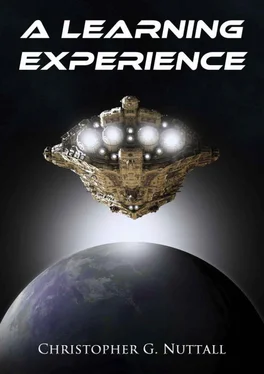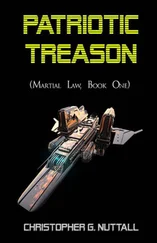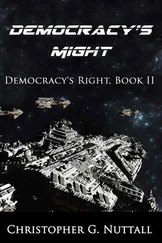Wilhelm leaned forward. “The US Government has requested ten fusion reactors,” he said, “and as many superconductors as we can produce. So far, we have provided five reactors, three of which have vanished into Area 51. The remaining two have been quietly attached to the national power grid, replacing a number of purely human power plants. I think they’re running experiments with the superconductors right now, concentrating on trying to produce batteries and directed energy weapons. The latter, in particular, will be very useful.
“In the meantime, the Internet Dongles have been a fantastic success and the world is waking up to their potential. Internet geeks all over the United States have been unlocking their functions, including several we didn’t anticipate when we produced them. By now, I imagine that NSA is having kittens. It’s simply not possible to trace the dongles through modern human technology. Several of them have even spread to China, despite — I’m sorry to say — the Chinese government slapping an immediate ban on them. Anyone would think they didn’t want their people to have unlimited and unmonitored access to the internet.”
He smiled. “Suffice it to say that the next few years should be very interesting,” he said. “I suspect that modern file-sharing software is about to be replaced with something else, something far faster. Hollywood and the other producers are going to go ballistic when they realise that someone can download a complete copy of The Avengers II in less than five minutes. In the long term, we may destroy Hollywood completely.”
“What a shame,” Steve said, dryly. He had scant regard for Hollywood. “What about our imports?”
“We’ve been able to expand more,” Wilhelm said. “It turned out that one small company was producing inflatable space stations for NASA. They…”
“Hold on,” Kevin interrupted. “ Inflatable space stations?”
“It’s quite a sound piece of technology,” Wilhelm assured him. “As always, the real problem is getting the bubbles up to orbit. We can do that, which will allow us to expand our operations in space and start working towards producing asteroid homesteading kits. Give us five years, sir, and the asteroid belt will be full of tiny settlements.”
“Another good reason for laws,” Charles commented. “How do we tell when someone’s been claim-jumping?”
Wilhelm shrugged. “Other imports are proceeding well,” he said. “Now the government isn’t going to get in our way, I’ve started to order more specialised space equipment as well as vast quantities of supplies we need for the colony. The cost is quite staggering, but we’re raking in money from the dongles.”
Steve smiled. “Keep a sharp eye on it,” he said. “We don’t want to wind up in debt to the government.”
He looked over at Keith Glass. “And our long-term plans?”
“The alien database suggested several ways to terraform Mars,” Glass said, calmly. “I suspect we will need to use the quickest way, which will take just over a hundred years, once we produce the right equipment. However, the database also warned that it would destroy any prior traces of life on Mars… assuming, of course, there ever was any. And it will hardly be unnoticed on Earth when we start slamming ice asteroids into the planet.
“Tech-wise, we’ve made some progress on understanding alien weapons and defensive systems,” he continued. “They do have force shields protecting their starships, but they can be broken down by sufficient energy. Unfortunately, the energy needs to be a ravening needle, not a simple explosion. I suspect that a modern alien starship could simply take a nuclear blast and shrug it off. Right now, we’re preparing plans to convert modern nuclear warheads into bomb-pumped lasers. However, without a large-scale nuclear warhead production program, it might take us years to build up enough weapons to defend the Earth.”
Mongo snorted. “And if they made a fuss over Iraq perhaps having nukes,” he said, “what will they make of us building nukes on the moon?”
Steve shrugged. “Could we purchase warheads from the Russians and adapt them?”
“Perhaps,” Glass said. “However, I don’t know if they could be adapted. Russian tech is… crude, to say the least. We might be better off constructing our own breeder reactors on the moon, at least in the long term.”
“We can work on that,” Steve said. He had never been irrationally terrified of nuclear power — the alien interface spoke of antimatter power plants and even stranger ideas — but he knew enough to treat it with extreme care. “And perhaps recruit some more experts from Earth to assist us.”
“Perhaps,” Glass agreed. “In the meantime…”
He stopped as an alarm rang.
Steve checked the interface, then swore. “We have one contact, perhaps two, coming towards the solar system,” he said. Their time had just run out. “I think we’re about to be put to the test.”
Shadow Warrior, Earth Orbit
Steve had spent days studying how the aliens waged war, only to discover that there were as many ideas on how to fight as there were spacefaring alien races. Only a tenth of known intelligent races, according to the database, had actually developed spacefaring technology on their own — and only a handful had developed FTL before they were discovered by someone else — but there were still quite a few ideas. The only reassuring note was that the Horde didn’t seem to be very competent at space combat, no matter how capable they were on the ground. But with two starships — if there were two starships — coming towards Earth, they would definitely have the numbers advantage.
“Sound red alert,” he said, as he sat down in the chair he’d fabricated to replace the Subhorde Commander’s throne. “All hands to battle stations.”
Mongo smirked. “How long have you been waiting to say that?”
Steve glowered at his back, then linked into the interface, accessing the starship’s tactical systems directly. They weren’t designed to actually fight the ship, he’d discovered, but they did handle issues that moved too rapidly for organic brains to comprehend. The two contacts were still racing towards the edge of the solar system, the gravity-waves announcing their arrival speeding out ahead of them. It would be nearly an hour, the interface noted, before the enemy starships arrived at Earth.
He disengaged, then looked over at Charles. “Bring the assault teams onboard and issue weapons,” he ordered. “And then prepare them, as best as possible, to board and storm another alien ship or two.”
“Understood,” Charles said. He hesitated, then leaned forward. “Are you going to alert the President?”
Steve hadn’t considered it until Charles brought it up. Should he alert the President? But what could the President do? It would take days to bring the American military to full alert — and besides, it wasn’t as if it posed any real threat to the Hordesmen. All they’d have to do was stay in orbit and drop rocks on any centres of resistance. After a few hours of constant bombardment, the remainder of the human race would be begging to surrender. No, there was nothing the President could do. But should he be told anyway?
It would be a gesture of trust, Steve knew; the President had wanted to be kept in the loop. But it would only worry him when there was nothing he could do… and yet he’d be outraged if he heard, afterwards, that Earth had been in grave danger and he hadn’t known a thing about it. No, he probably should be told. And, if Shadow Warrior was lost, he might be able to swear blind that he’d never heard of the ship or its human crew. Maybe the Horde would accept it.
Читать дальше












